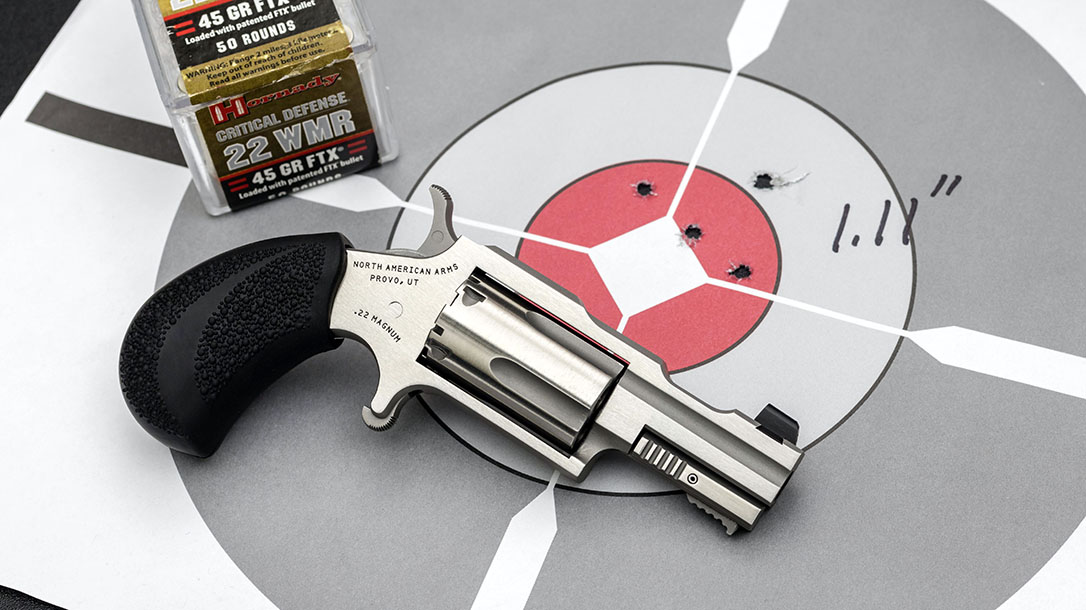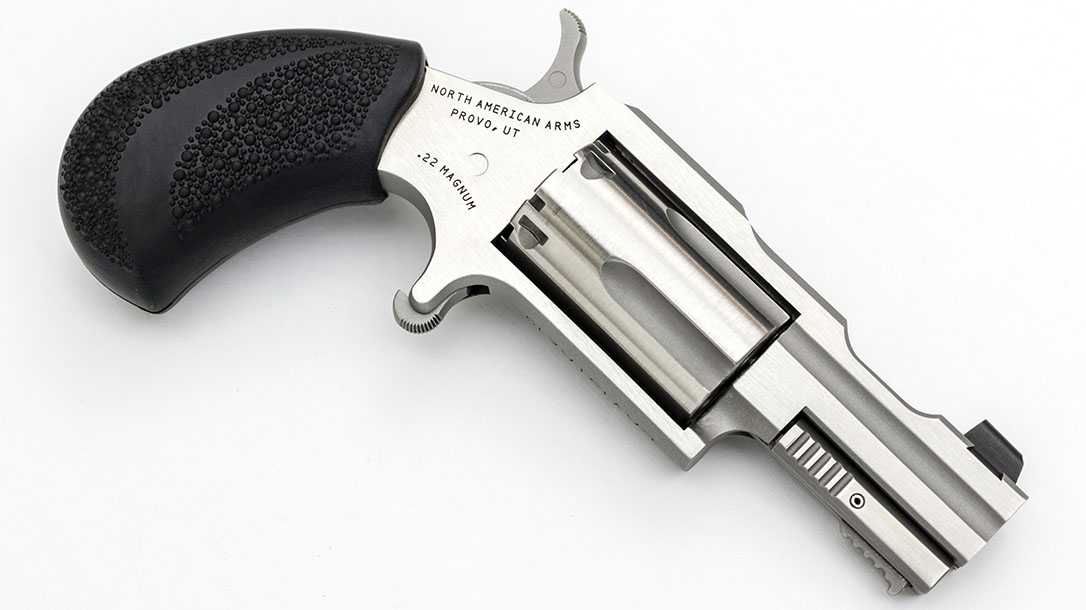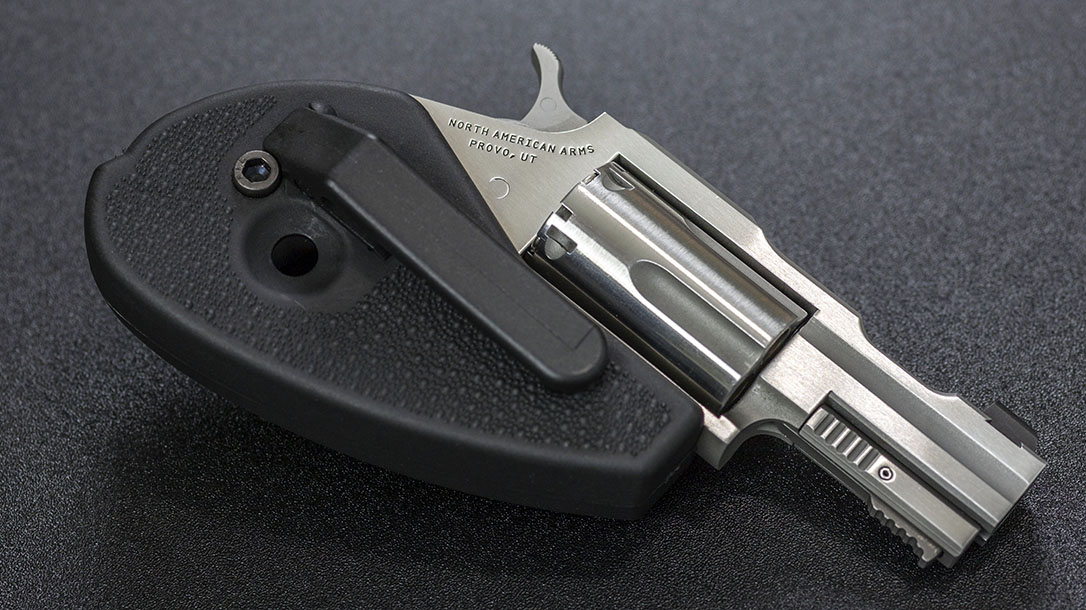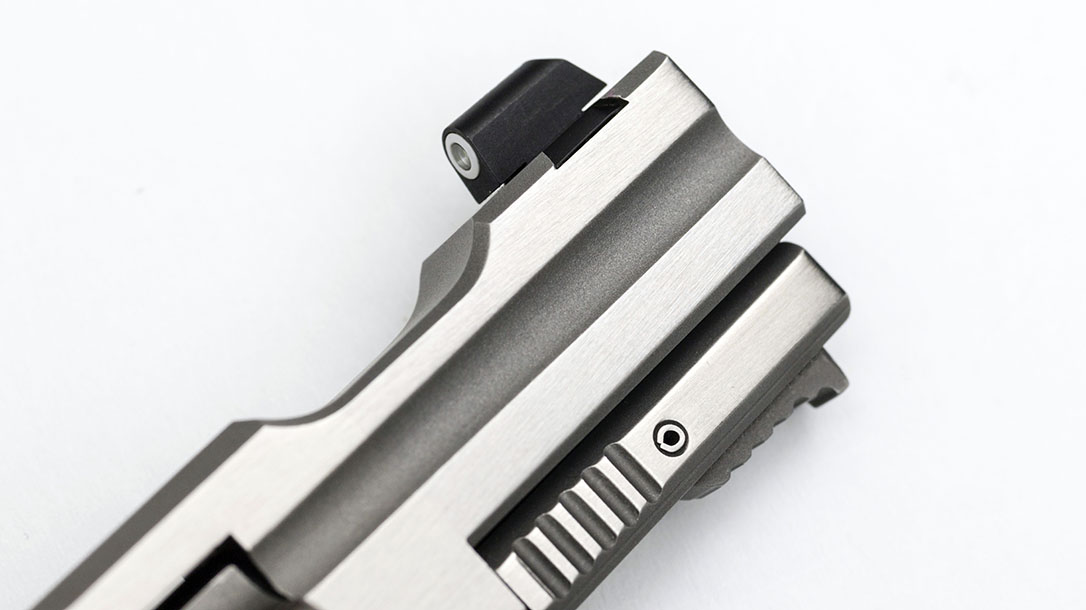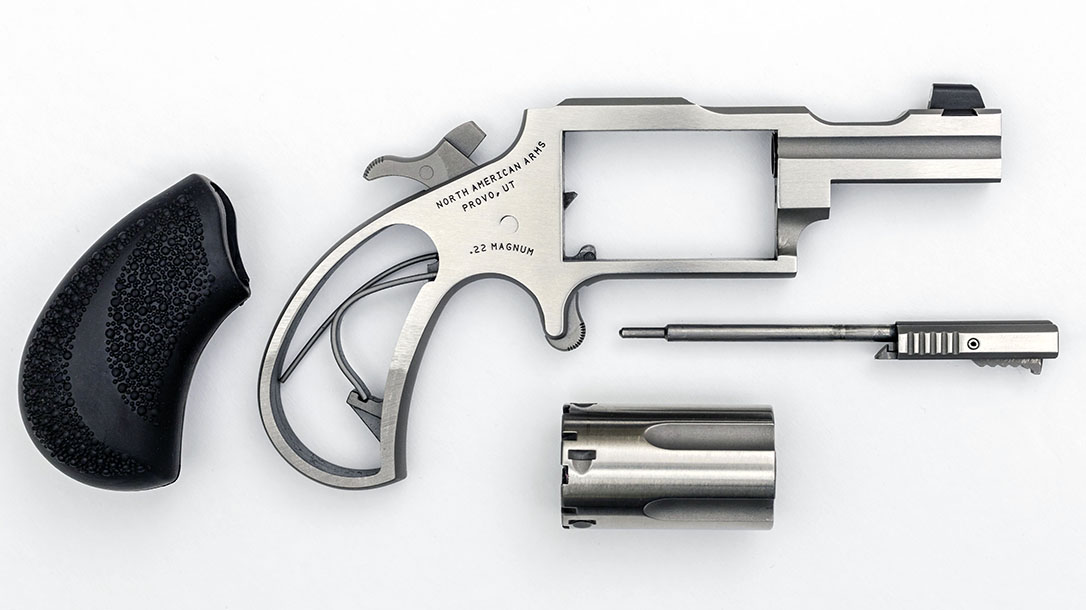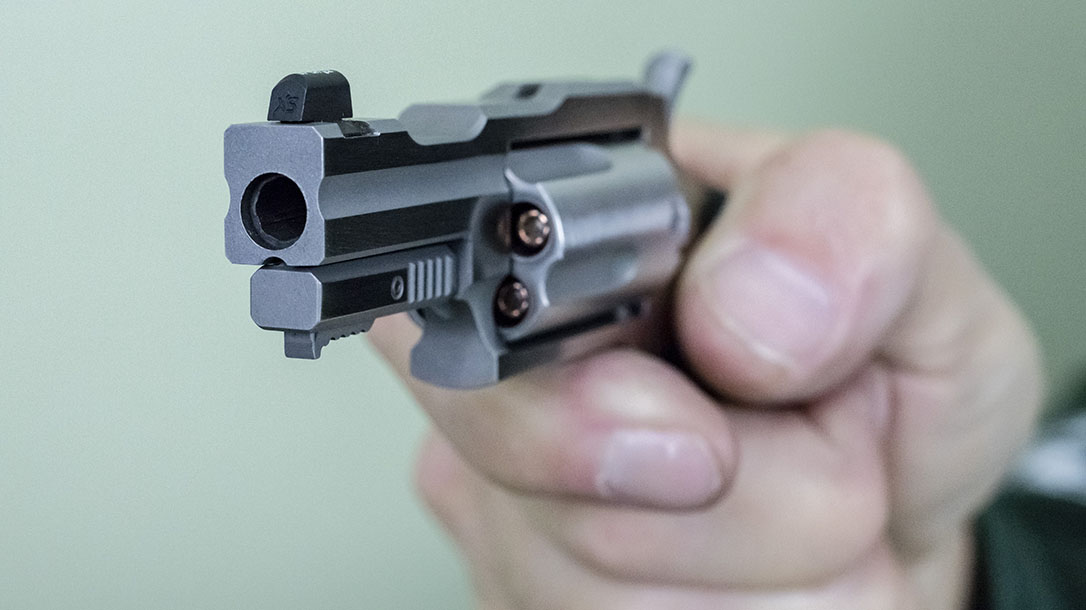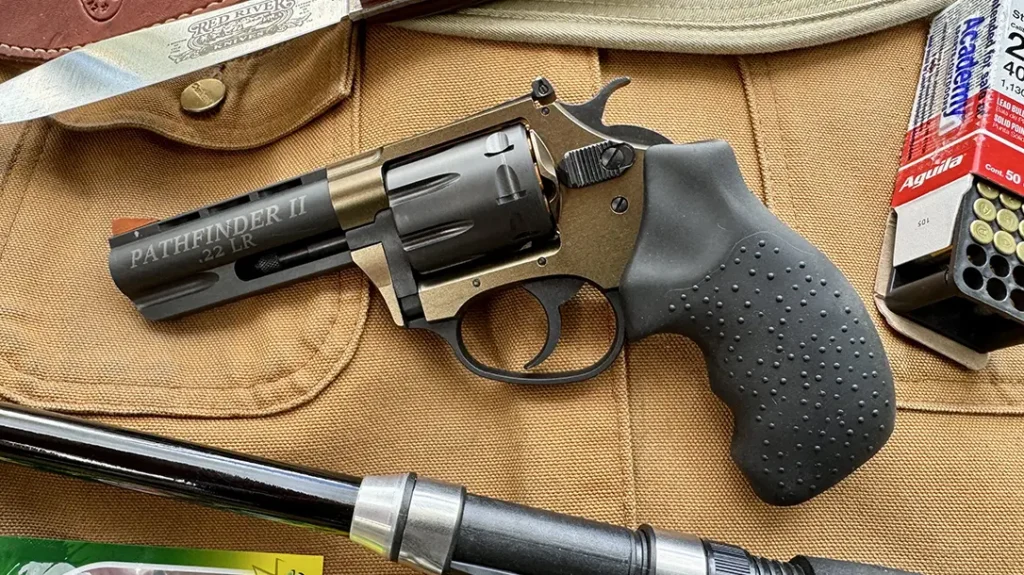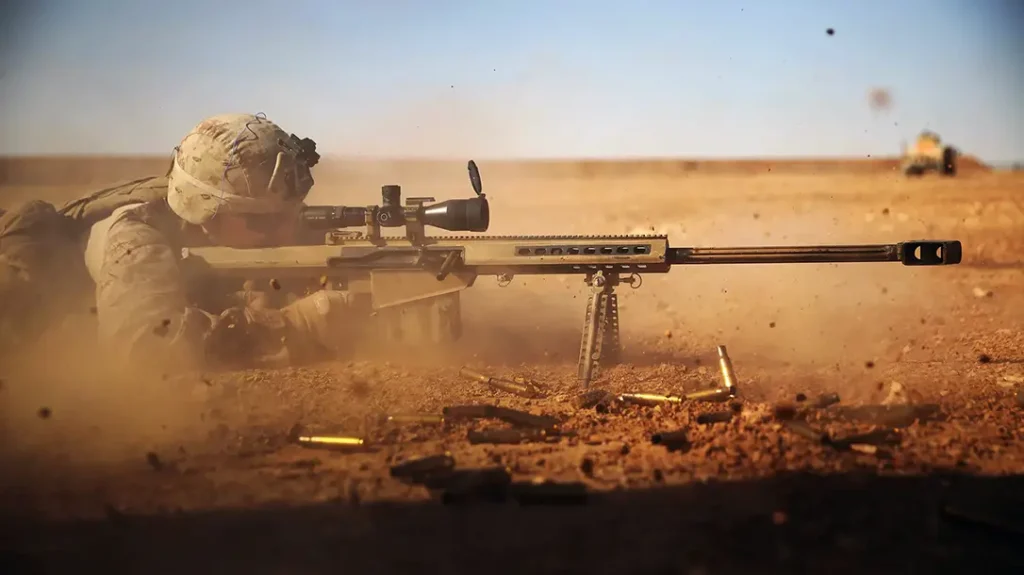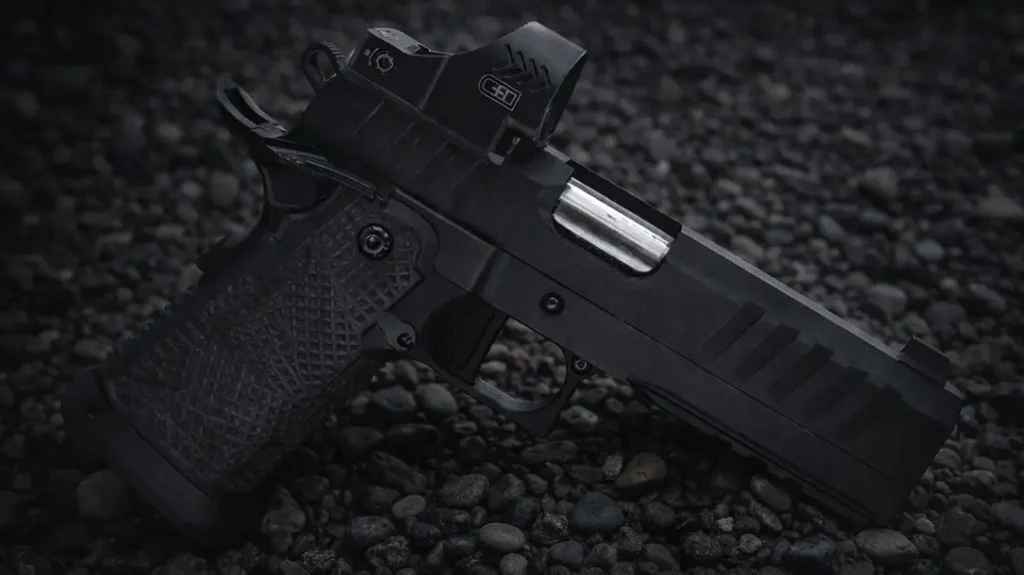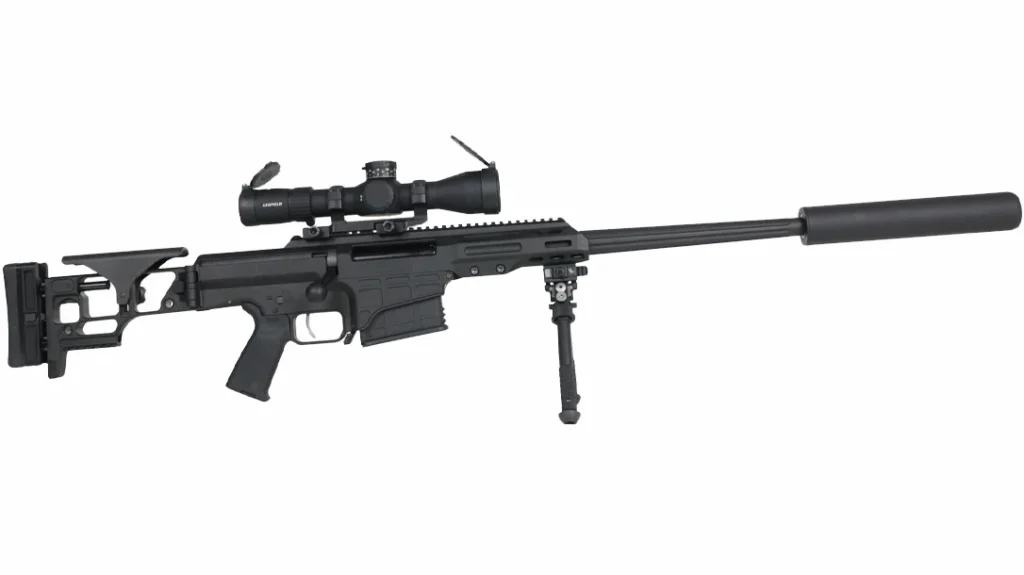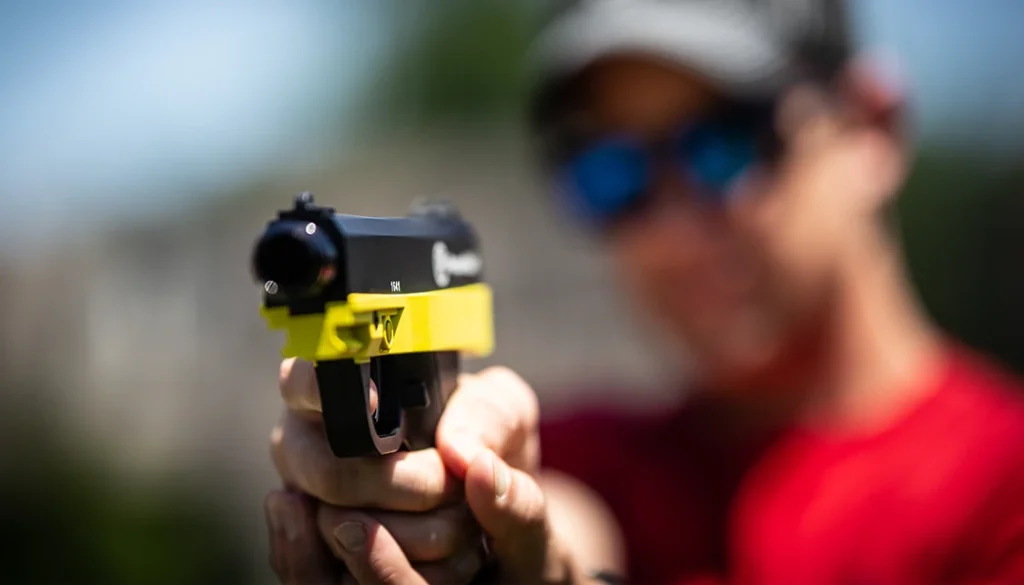If you’re a serious handgunner, you already know that “BUG” stands for “backup gun” in the shooting world. As the moniker implies, this is a gun that’s carried in addition to a primary firearm. It’s normally smaller than the primary gun and may or may not be the same caliber. Think of a BUG as an insurance policy: If your primary firearm is out of action, it’s time to deploy your backup. Often, a BUG can be put into play quicker than reloading the primary, which is known as a “New York reload.”
Back in my cop days, I carried several different backup guns. The first was a Bauer .25 ACP semi-auto that fit inside a handcuff case. Next came a .22 Magnum High Standard derringer and then a Charter Arms Undercover in .38 Special. But for deep cover, I had a tiny North American Arms (NAA) mini-revolver in .22 Short that was attached to a leather thong I wore around my neck beneath my shirt — strictly a last-ditch armament.
Advertisement — Continue Reading Below
TALO Exclusive
Over the years, NAA has offered a plethora of mini-revolvers, and for the most part, they’ve been constructed of durable stainless steel, making it possible to carry them almost anywhere. For the uninitiated, these are miniature single-action revolvers requir the hammer to be cocked manually for each shot. They’ve typically held five rounds of .22 Short, .22 LR or .22 Magnum ammo.
Up until recently, loading and unloading these revolvers has required removing the cylinder. Essentially, the cylinder base pin has to be unlocked and removed from the cylinder and frame. The locking mechanism for this pin is sometimes different depending upon the version of the mini-revolver you have. The first minis had a simple push button protruding from the front of the knurled pin. Others have a pull-down-and-turn lock, and two newer models, the Sidewinder and Ranger II, have swing-out cylinders and hinged frames, respectively.
This brings us to the BUG II, a TALO Distributors exclusive, which has a special Sheriff-style cylinder pin. The slightly hooked lock-release latch is pushed in and forward to remove the pin. The pin can also be used to push out empty cases, but more on that later.
Advertisement — Continue Reading Below
You’ll also notice the North American Arms BUG II’s stepped and stylized topstrap. The barrel, which is integral with the frame, is square shaped and fluted on both sides. Up front, NAA placed an XS Big Dot sight dovetailed into a ramp. This round sight has a green tritium capsule surrounded by a large white circle. For a rear sight, the topstrap forms a squared channel for targeting.
Like other NAA mini-revolvers, the cylinder has small notches at the rear that either act as hammer rests for safety or loaded-chamber indicators, exposing the cartridge rim, depending on their position. The BUG II also comes with a long hammer spur that’s serrated for traction, along with a spur-style trigger partially protected by a downward extension of the frame.
The overall fit and finish on my test sample were very good. The BUG II has a stainless steel finish, and it appears brushed on the sides but sand-blasted on the top, bottom and in the fluted areas. The one-piece Hogue grip is made of rubber with a pebble texture. Finally, NAA gives every BUG II a unique serial number and sends it out in a lockable steel case with a foam-rubber lining.
Advertisement — Continue Reading Below
The Extras
NAA offers quite a selection of accessories for its firearms, and two that I think work particularly well with the BUG II are the Pocket Holster and Holster Grip. The Pocket Holster is a little pocket scabbard made of black leather and is put together with nylon lock-stitching. It’s an open-top and -bottom design, and the rear of the holster has been fashioned into a pouch with a flap cover and snap that’ll hold
five .22 Magnum cartridges.
The other accessory is a black plastic gadget that, when installed on the revolver, makes it look kind of like a folding knife. To install the Holster Grip, you first have to remove the factory grip panels. The new pebble-grained grip is added next, and spring-loaded detents are fitted along with an axle that holds the whole unit in place. A pocket clip can be attached to either side, and a cover with the NAA logo shields the attachment point that’s not in use. You just fold the gun into the grip and clip it to your pocket or wherever, and then when you pull it out, you just pull the gun out of the holster like a knife and the detents lock it into place. The device then acts as a larger grip that’s easier to hold onto.
Performance
I chose four different .22 Magnum loads to test the NAA mini-revolver. My first task at the range was shooting every load through the BUG II’s 1.5-inch barrel to get some velocity figures with my Oehler 35P chronograph.
Advertisement — Continue Reading Below
Since the BUG II has such a short barrel and sight radius, as well as a trigger pull that made the tip of my index finger sore after 20 shots, I decided to limit my accuracy testing distance to 5 yards. For all intents and purposes, the BUG II is an up-close-and-personal “belly gun,” so this seemed sufficient. Using a sandbag rest on a bench, I fired three 5-shot groups with each of the .22 Magnum test cartridges. My initial shots were a little low and right of the point of aim. So, I made some “Kentucky adjustments” to try and land the shots in the center scoring ring. My best group measured 1.11 inches with the Hornady Critical Defense load. Second place went to Speer’s Gold Dot HPs, and to be honest, my best groups with the other two loads were less than 2 inches wide — not too shabby!
For drills, I used the Holster Grip in my left trouser pocket, so I attached the clip on the left side of the device. When drawing, be sure to put your thumb on the spur so it doesn’t catch on your pocket’s lining.
As for the different drills, first I simulated a close-contact fight by shooting at a target 2 feet in front of me. I cocked and fired one-handed as fast as I could without really aiming. Then I moved back to 3 yards and did the same thing. At 5 yards, I drew the Holster-Gripped BUG II from my pants pocket, unfolded it and fired while aiming. I repeated this again at 7 and 10 yards. For a final exercise, I put my target at 7 yards and, using my support hand, flipped the switch that returned the target to the bench. As it moved toward me, I used my strong hand to fire five shots starting from a low-ready position.
Advertisement — Continue Reading Below
Out of the 35 shots I fired from the BUG II, only one shot strayed out into the 7-ring and one shot hit the left ear of the humanoid silhouette. Besides the six hits in the 9-ring, the rest were in the 10-ring. During this evaluation phase, I had no malfunctions with the gun, ammo or Holster Grip. Fortunately, I didn’t catch the hammer spur in my pocket, nor did I accidentally unlatch the base pin during my draws.
Weighing In
If I need to go to my NAA backup gun, I only have five shots. The reload process for this mini-revolver isn’t something you’d want to do in a high-stress situation, as it involves too many intricate motor skills. The confrontation will most likely be at close range, but I’d still like to get some distance and seek cover. If possible, I’d use a two-handed hold and at least get a flash sight picture, attempting to make lethal shots into the “boiler room” and “deadly triangle” of the face.
Advertisement — Continue Reading Below
A backup gun has to be dependable and accurate enough to get the job done in a last-ditch effort. The North American Arms BUG II fits the bill in my book. For more information about the North American Arms Bug II, visit taloinc.com and northamericanarms.com.
North American Arms Bug II
- Caliber: .22 WMR
- Barrel: 1.5 inches
- Overall Length: 5.5 inches
- Weight: 10.7 ounces (empty)
- Grip: Hogue rubber
- Sights: XS Big Dot front, notch rear
- Action: SA
- Finish: Stainless
- Capacity: 5
- MSRP: $275
This article was originally published in Combat Handguns May/June 2019. To order a copy, please visit outdoorgroupstore.com.
